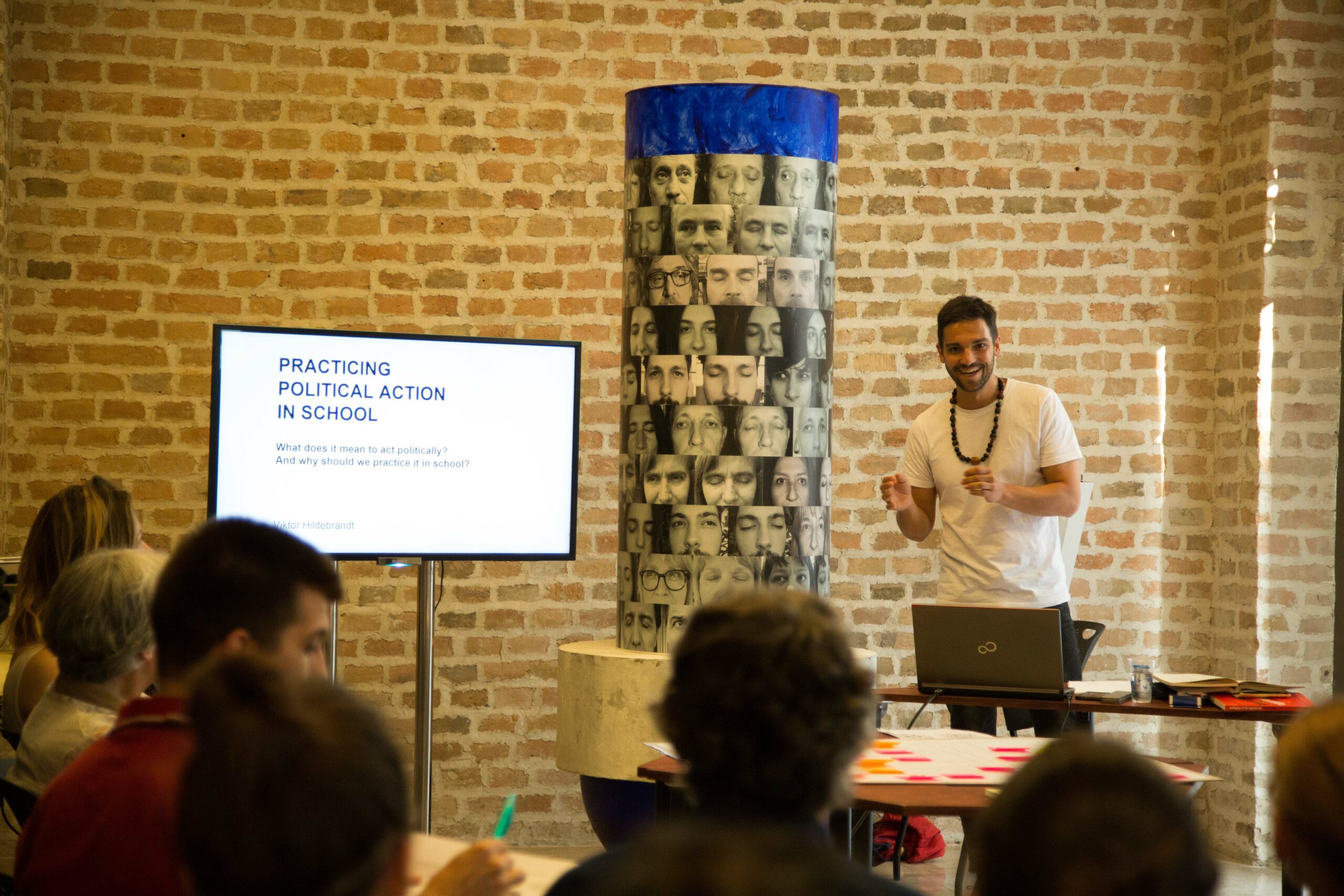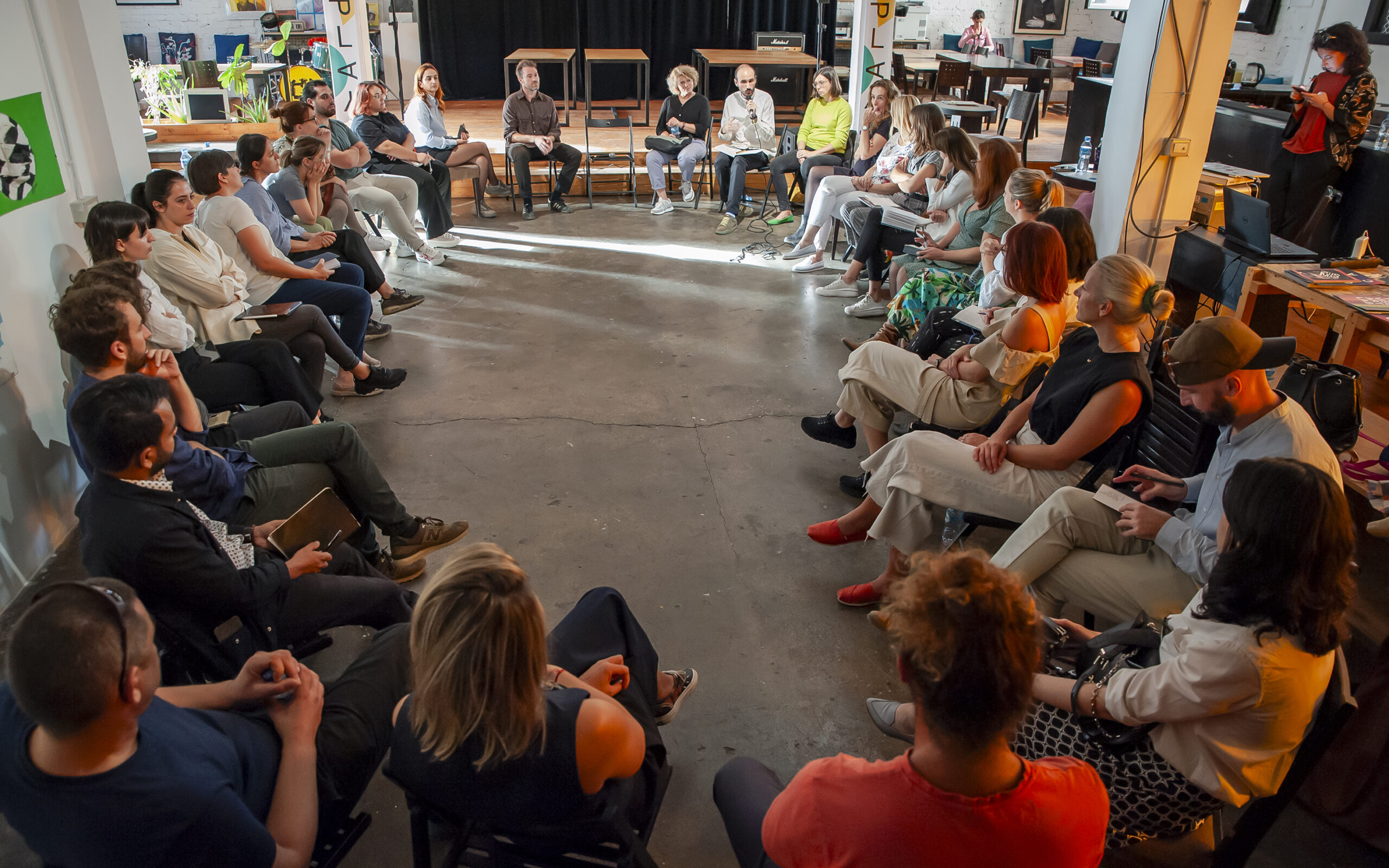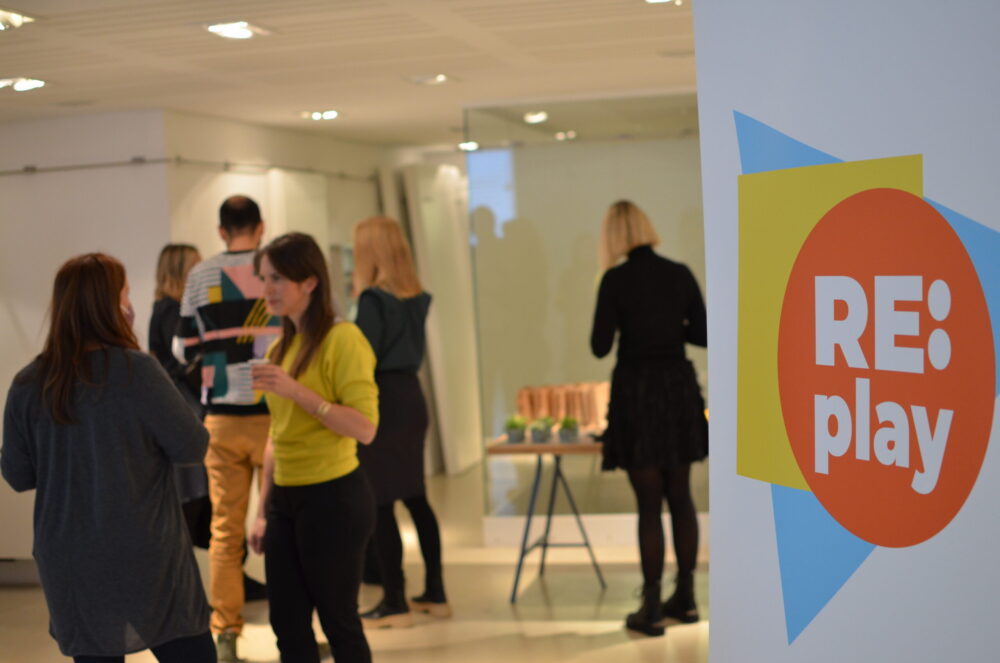Write: Victor Hildebrant and Predrag Milić
Hidden behind the title “How We Build Škograd?”, constructive and with the question, we open the stage and invite all those who could help us to make our activities even more successful and our reality more equitable. In a series of open conversations with carefully selected guests, in the comfortable atmosphere of the Goethe-Institute library, we will try to highlight some of the key topics of our work on Ledine.

H.G. Wells once said that we are in a race between education and catastrophe. If we do not educate our children properly, in other words, there is very little hope. But what are the elements of „proper“ education? Everybody would agree that students need to learn how to write, read and do basic calculations. And yet educators, parents and decision-makers in education should not focus exclusively on teaching technical skills and factual knowledge. Rather, education should gravitate around the formation of character and fundamental capacities. Sir Ken Robinson, one of the most renowned experts in the field of education, makes out eight core competencies that schools should teach. These are curiosity, creativity, criticism, communication, collaboration, compassion, composure and citizenship.
„Democracy has to be born anew every generation, and education is its midwife“ (John Dewey)
In my presentation, I focused on the last one. Robinson defines citizenship as the ability to engage constructively with society and to participate in the processes that sustain it. One key element of practising citizenship is participation in public affairs, i.e. acting politically. The good news is that there are countless ways in which schools can teach and encourage political action. The bad news is that hardly anybody has a clear idea of the essential elements of political action. Even though (and perhaps because) it is one of the basic human capacities, we tend to talk about political action only in very superficial terms.
Hannah Arendt is one of the few political theorists who spent more energy on thinking about political action than about political systems. Her work is a good starting point for everybody who is interested in the meaning of political action. In Political Space Matters my colleague Predrag Milic and I looked at politics, as it were, through the eyes of Hannah Arendt. We tried to summarise and explain all the different elements of political action. You can find a complete overview on our website.
If applied to the field of education, to the structure of curricula, to the daily life of schools, we can learn a number of lessons. These are, from my perspective, the most important ones:
- Political action is about being with one another, rather than for or against others; it is about the encounter and the co-existence of differences. Teach students to appreciate diversity and try to discourage uniformity.
- Political action is not about the individual but about the common world in which we live together. Teach students to care about what they share, what they use together, what affects all of them. Do not expect that everybody will actually care. But support those who do.
- Political action is a spectacle. While political actors obviously care about the material results of their actions, they also care about the moment of action, about their performance in front of an audience. There is nothing wrong with that! In the case of political actors, being a good actor does not mean to be a good liar or an expert of delusion. It means to appear as the unique somebody that each of us individually is. To disclose oneself in front of others takes courage. Teach students to be courageous.
- Political actors deliberate. To de-liberate means to liberate oneself from personal standpoints, opinions and interests, thus gaining the freedom to move between different perspectives and to (mentally) „walk in somebody else’s shoes“ for a while. Teach students to put themselves in the position of others, teach them to have empathy and to see the world with the eyes of their fellows.
- The flipside of deliberation is persuasion. Persuasion is the capacity to articulate opinions in meaningful ways and to relate different standpoints to one another convincingly. What is needed, obviously, is a good command of language. Teach students to become convincing speakers.
- Political action creates new beginnings, to initiate something which otherwise would not have happened, to start a process that is more than natural effect or a logical consequence. New beginnings are always unexpected; they must be! Not every surprise is pleasant. And yet, if we do not want to teach students to be machines we have to be prepared for pretty much everything. When you teach students to act politically, count on them to do things you don’t expect, things you don’t embrace, things you don’t have under control. And then deal with it …




